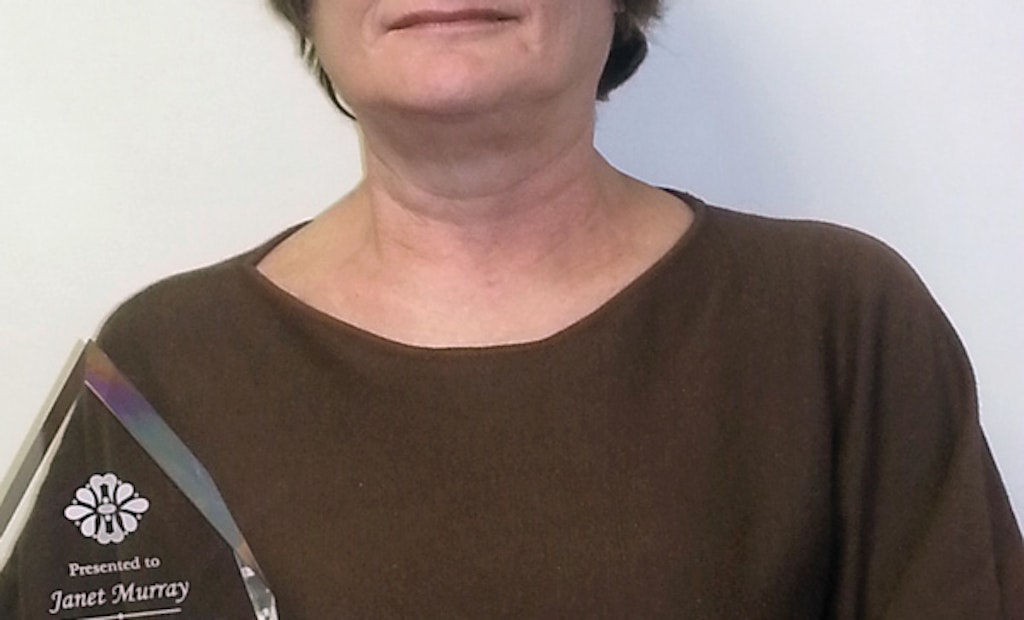Interested in Systems/ATUs?
Get Systems/ATUs articles, news and videos right in your inbox! Sign up now.
Systems/ATUs + Get AlertsDeveloping an educational program for installers, engineers, service providers, soil evaluators and regulators was the prime objective of Janet Murray when she became president of the Missouri Smallflows Organization in 2006. Murray, a registered environmental health supervisor and regulator for the Randolph County Health Department in Moberly, Mo., wanted a program that extended beyond the half dozen courses offered at MSO annual conferences.
“Onsite professionals need 12 hours of continuing education every three years for state registration or license renewal,” she says. “The Missouri Department of Health and Senior Services sets the standards and offers a few courses, but MSO does the majority of training.”
The organization incorporated in 1995, one year before the new code requiring continuing education became effective. At the time, the state had 3,500 installers. Today, it has about 2,000 registered installers (half of whom are licensed to install advanced treatment systems), 65 soil evaluators, and more than 200 licensed inspectors for property sales.
Conferences have expanded from one day with one educational track to two days with three consecutive tracks on effluent dispersal and water management, earthen structures, troubleshooting, hydraulics for pressurized systems, basics of onsite, design engineering, drip irrigation design and installation, and the Consortium of Institutes for Decentralized Wastewater Treatment operation and maintenance course. As the status of MSO conferences rose, it attracted the heavy-hitters of onsite as speakers. In 2012, the state attorney general gave the keynote address on his study of water quality issues at Lake of the Ozarks.
Just warming up
A volunteer board of directors organized the conferences and educational programs, tracked CEUs for 250 to 300 members, published a quarterly newsletter and managed the association’s daily demands. By 2008, the workload overwhelmed them and they hired a paid executive director.
To meet demand for more and better courses, the MSO formed the Institute of Learning Committee. Members such as Randall Miles of the University of Missouri, Dennis Sievers of the United States Department of Agriculture Rural Development, and Tom Fritts, president of the National Onsite Wastewater Recycling Association, developed new training programs.
“Their wonderful work extended beyond annual conferences, enabling us to send trainers throughout the state with one- and two-day presentations equaling six to 12 hours of training,” says Murray.
The program originated after a legislator proposed eliminating the educational requirement in response to complaints from some constituents that classes were never offered in their area. “I and other members of the board of directors testified against the proposal, but the person who made the biggest impression was a former board member in bib overalls and a baseball cap,” says Murray. “He advised the hearing committee to retain the educational component because it helped installers keep up with the changing industry. The impact of his testimony derailed the proposal.”
Tammy Trantham replaced the executive director in 2010. As the MSO executive secretary, she coordinates with local county health departments on what classes the installers need or are requesting. She then hires the instructor and registration assistant. The organization’s website lists the next six months of classes. By 2014, all MSO courses should be online.
“Our biggest challenge will be developing classes that address changing technologies,” says Murray. “Most of our educational programs are five years old, so it’s time for new ones.”
Another MSO educational program is the Daryel Brock Scholarship for high school students seeking higher education. Two $500 scholarships are awarded to members’ children annually.
Some of those recipients are now taking over their parents’ businesses, but many more are entering the industry as newcomers. “It surprises me, but every year I see an influx of youth into MSO to replace retiring professionals,” says Murray. “One reason could be the bad economy. It forced contractors who did installations as a sideline to subcontract the work, and that is attracting young men and women to the field.”
Call to action
Because MSO has always responded to legislation rather than help to write it, staying abreast of proposed regulations is important. To do that, Murray receives weekly memos from the Missouri Association of Local Public Health Agencies legislative committee, then alerts the membership to relevant issues.
Murray also works with the Randolph County Onsite Wastewater Review Committee to revise septic rules. A recent accomplishment was passing an ordinance requiring a permit to install onsite systems on properties of more than three acres. The state law exempts them from needing a permit. “MSO would like to see the three-acre exemption removed from the law,” she says.
One element missing from the organization is a community outreach program. Murray envisions it to include installing systems for low-income families as a field day with CEUs, and having a booth at the State Fair and other venues to give homeowners information about their onsite systems. “It would behoove us to look in those directions,” she says. “Some members have installed systems for Habitat for Humanity, but it was not an MSO venture.”
Murray wants MSO to receive some of the money the U.S. Environmental Protection Agency grants annually to fund municipal sewers. “Not many groups go after the money because the agency set up the program with so many onerous qualifications,” she says. “It shouldn’t be that difficult to assist needy homeowners with failing systems. Somehow, we must open that door.”






